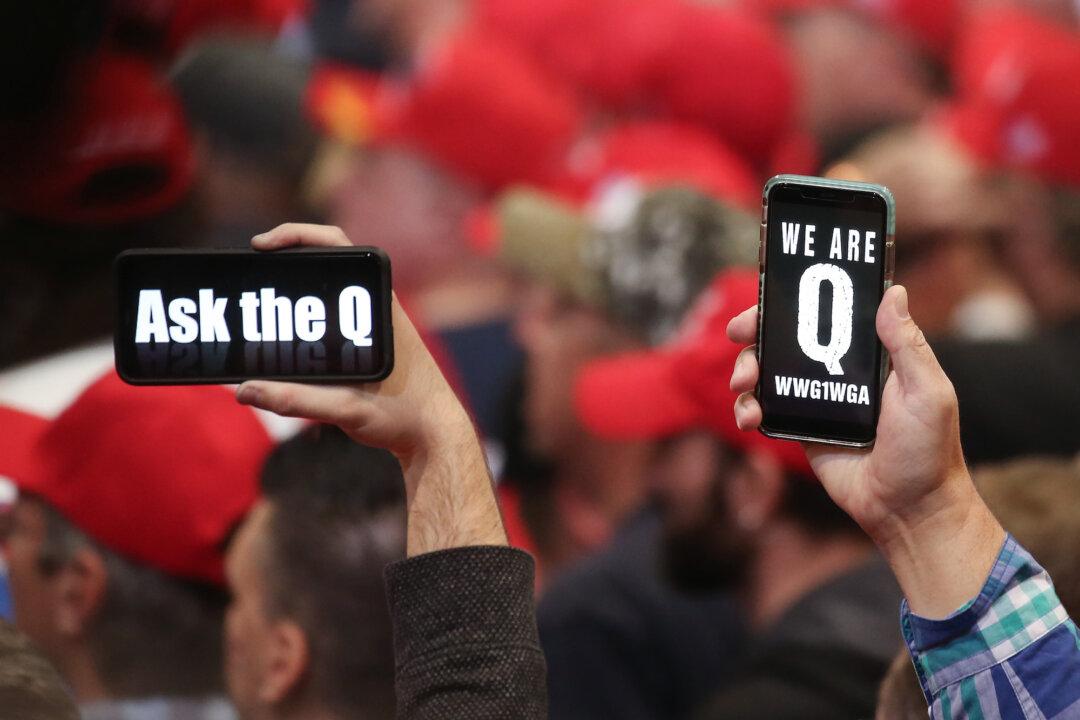Facebook announced on Oct. 6 that it’s banning all QAnon accounts, regardless of whether they contain violent content, representing an amplification of earlier efforts by the social media giant to ban accounts associated with the movement that explicitly discussed violence.
The initiative, according to an updated policy on how Facebook deals with “movements and organizations tied to violence” more broadly, seeks to disrupt the ability of “militarized social movements” to advance their agendas by means of the company’s platforms, including via Facebook pages, groups, and Instagram accounts.





